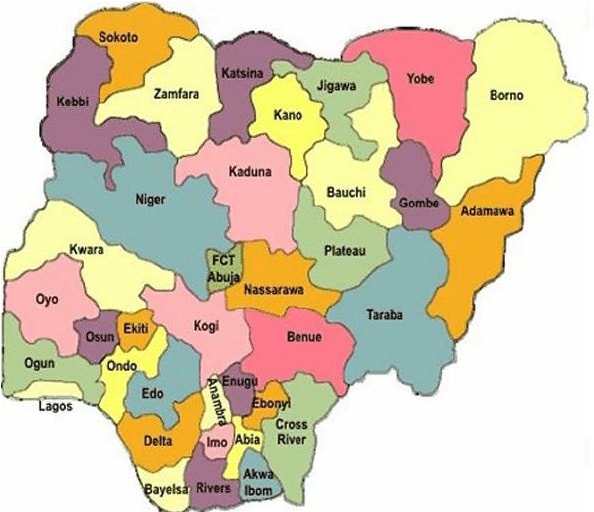Back to: CIVIC EDUCATION JSS2
Welcome to Class !!
We are eager to have you join us !!
In today’s Civic Education class, We will be discussing Nigeria as a Federation. We hope you enjoy the class!

NIGERIA AS A FEDERATION
Federation is a system of government in which there is a constitutional division of powers between the central government and other component units forming a union (state and regional government). It is commonly referred to as a federal system of government or federalism.
Nigeria is one indivisible and indissoluble sovereign state known as Federal as the Republic of Nigeria.
The name Nigeria was suggested by Miss Flora Shaw (later Mrs Lugard) in her essay which first appeared in The Times of January 1897. The Nigerian nation came into existence in 1914 when the Southern and Northern protectorates were amalgamated. It became an independent nation and 99th member of UNO on October 1, 1960. Furthermore, it became a federation consists of states and federal territory.
The thirty _six states in Nigeria are Abia, Adamawa, Akwa_Ibom, Anambra, Bauchi, Bayelsa, Benue, Borno, Cross River, Delta, Ebonyi, Edo, Ekiti, Enugu, Gombe, Imo, Jigawa, Kaduna, Kano, Katsina, Kebbi, Kogi, Kwara, Lagos, Nasarawa, Niger, Ogun, Ondo, Osun, Oyo, Plateau, Rivers, Sokoto, Taraba, Yobe, Zamfara, and the Federal Capital Territory (FCT) Abuja.
The total number of local governments in Nigeria is 774.

Constitutional power is shared among them as follow:
- Exclusive List: Only the federal government can legislate on items on the exclusive list. These include defence, currency, foreign affairs, immigration and emigration, customs, mining, police force etc.
- Concurrent List: This spells out the areas where the powers are jointly shared by the federal and state government. Items on which both the federal and state government can legislate are called concurrent lists. Such areas include agriculture, education, health, roads, information etc.
- Residual List: This shows items on which only state government can legislate. This list includes minor roads, chieftaincy, markets etc.
Need for Federation
Nigeria adopted federation because of the following reasons:
- National integration: The component units within Nigeria need to be brought together and ruled as one and not as a separate entity. The government at the centre cares for everybody and coordinates the economic and political activities of other component units _state and local governments. It makes policies which help in integrating the country. For instance, the establishment of National Youth service corps, the national flag, national anthem and common constitution are symbols which bring Nigerians together. The central government sees to the even development of all the states and local governments.
- Unity in Diversity: Federation is a necessity in Nigeria due to the multi-ethnicity structure of the country. Nigeria has over 250 ethnic groups within its territory. The federal government has the major responsibility of ensuring that policies that will unify the entire people and give them the sense of belonging are initiated and implemented. Among such policies which had been made in the past we’re the establishment of unity schools in various part of Nigeria which brings children from different parts of Nigeria together, the establishment of National Youth Service Corps (NYSC), the establishment of the Federal Character Commission and so on. Without the Federal structure, unifying the different ethnic groups in Nigeria would be a very difficult task.
- Geographical Size: For easy administration, there is the need for a federation so that the activities of the state and local governments can be monitored to ensure that people at the grassroots are well cared for.
- Economic Factor: The need to pool resources together to form a strong economy necessitated the adoption of the federal structure in Nigeria.
- Minorities: The need to protect the interests and aspirations of the minorities called for the adoption of a federation in Nigeria.
We have come to the end of this class. We do hope you enjoyed the class?
Should you have any further question, feel free to ask in the comment section below and trust us to respond as soon as possible.
In our next class, we will be talking about the Characteristics of a Federation. We are very much eager to meet you there.

good morning,I want to have access to your notes on the following subjects: English language, civic Education, literature, history and christian religious studies.
I want to have access to your notes on the following subjects: Civic education,Social studies and Security Education for Jss1,2and3 ,thanks.
I want to have complete notes for each topic on the following subjects:. Civic education, Social studies and Security education, from Jss1,2 and 3. Thank you
We are currently updating our content, once complete, you will be able to download our content for a token automatically. At the moment, you can access all our notes for free on this website.
this is great I love it
Characteristics of a federation